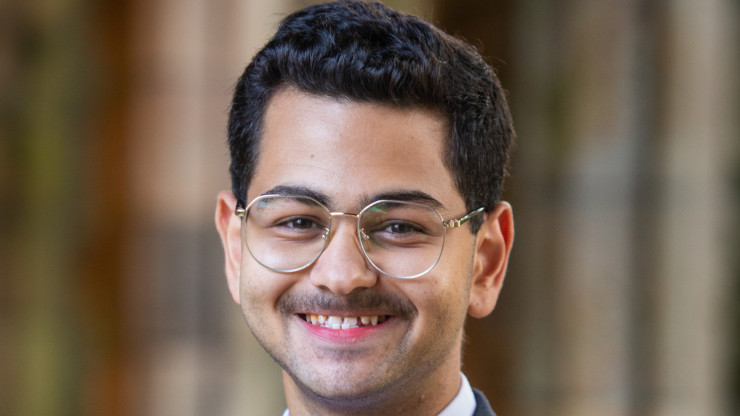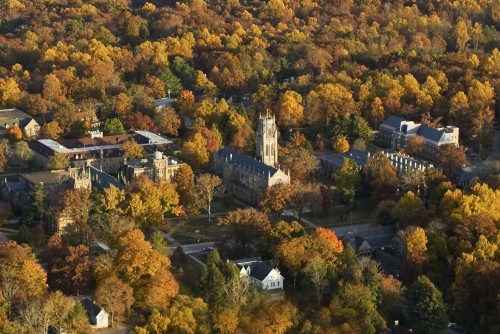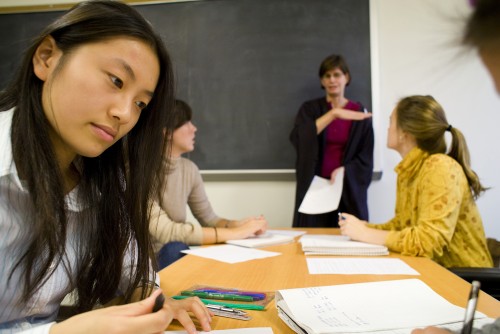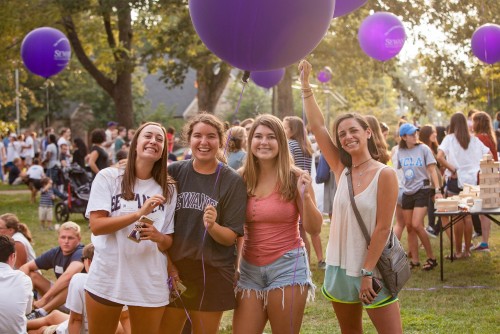
Long-term Potential: Sewanee Neuroscience Major Gets a Jump-start on Research
Sewanee senior Seif Selim stays busy. A neuroscience major with minors in psychology and biology, Selim has somehow found the time to serve as the president of the Organization for Cross-Cultural Understanding, tutor his peers in biology, join the Interfaith Council and fencing and neuroscience clubs, and study abroad in Denmark during his junior year. Perhaps most importantly, Selim also found his way into neuroscience labs at Sewanee and elsewhere—experiences that not only complemented his coursework, but also helped him confirm his passions and set a course for his future.
Interested in science from a young age, Selim attended a STEM high school in his hometown of Cairo, where formative experiences like semester-long research projects and a top 10 finish in the Egyptian Brain Bee (a national neuroscience competition for high school students) helped him develop an interest in the field of neuroscience. “Neuroscience is very meta—it’s the brain trying to understand itself, which is so interesting,” says Selim. Additionally, having seen firsthand the devastating effects of neurodegenerative disease within his own family lent Selim a personal motivation to want to advance our knowledge within the field. Realizing that he was more interested in scientific research than in being a physician, Selim was delighted to be accepted to Sewanee to pursue a degree in neuroscience and have the opportunity for hands-on research experience.
In the summer of 2021, Selim completed a research internship at the University of Florida, working with neuroscience professors Jose Abisambra and Jeremy McIntyre. Selim’s project examined the short-term effects of traumatic brain injuries (TBIs) in mice. The researchers used CHIMERA (Closed Head Impact Model of Engineered Rotational Acceleration), a non-surgical model for inducing TBIs in rodents, and found that mice subjected to the CHIMERA condition showed lower synaptic strength as measured by output-to-input ratio. “Some people might wonder what’s new about this study,” says Selim, “because it’s not super surprising to find that an injured brain doesn’t work as well as a non-injured one.” But for Selim and his research team, the importance of the study lies in the electrophysiological validation it provides for CHIMERA, which, as a newer model, needs additional validation to verify its efficacy.
For the summer between his junior and senior year, Selim was one of the lucky few applicants from around the world selected for the prestigious Chemers Neustein Summer Undergraduate Research Fellowship Program at The Rockefeller University in New York. Once again working with mice in Priya Rajasethupathy’s lab, this project had Selim looking at self-initiated behaviors, or the behaviors that the mice had not been trained or conditioned to perform. The study’s elaborate setup involved having the mice run on a ball and navigate a virtual reality collection of “rooms” in which they would find either a reward or a punishment upon virtually entering. Thanks to the fellowship, Selim learned new laboratory skills including surgical processes for injecting viruses into mice brains and immunohistochemistry (IHC) techniques for viewing brain structures.
Those summer experiences solidified Selim’s interest in a career as a researcher. Soon, he will begin applying for Ph.D. programs in neuroscience—and yes, both of his internship sites have made his shortlist of schools. But first, Selim will travel to San Diego to present at the Society for Neuroscience’s annual conference, an opportunity made possible after he won the society’s Trainee Professional Development Award. Selim will also complete an independent study project in Sewanee with Assistant Professor of Biology Chris Shelley. And he also hopes to find time to explore his other passion: filmmaking.
In light of his many and varied research experiences, Selim’s future as a researcher is not only bright—it’s already in progress.
Interested in reading about more faculty and student research projects? CLICK HERE!
More about Sewanee

A visit to the Domain (it's what we call our 13,000-acre campus) is the best way to determine if Sewanee is a good fit for you. Once you set foot on campus, spend time with our students and professors, or take a stroll through Abbo's Alley, we are confident that Sewanee will find its way into your heart.

Our small classes mean that your voice will be heard, your contribution will be expected, and your opinion will be listened to (and disagreed with, and challenged, and seen from a different perspective, and pushed in a new direction, and considered—and you know what? Maybe we’re both right. See how it works?).

We're a community where everyone has a place and there's a place for everyone. Group study? We'll bring our notes. Rock climbing? We're geared up and ready. Jam session? Sure, we'll play with you. Whatever you want to do, at Sewanee, you'll never have to go it alone. Unless you need your space. Then, we totally get it.

